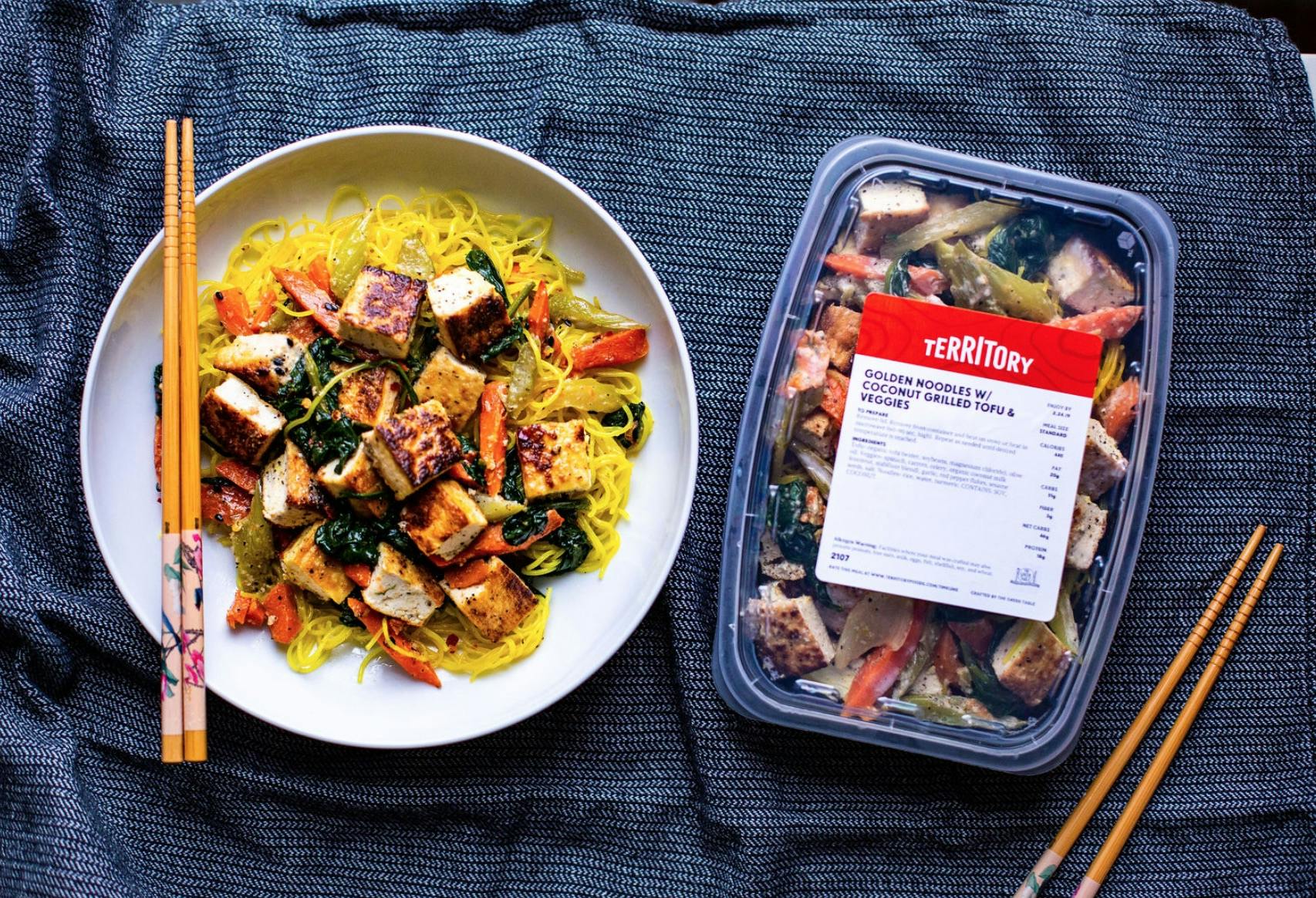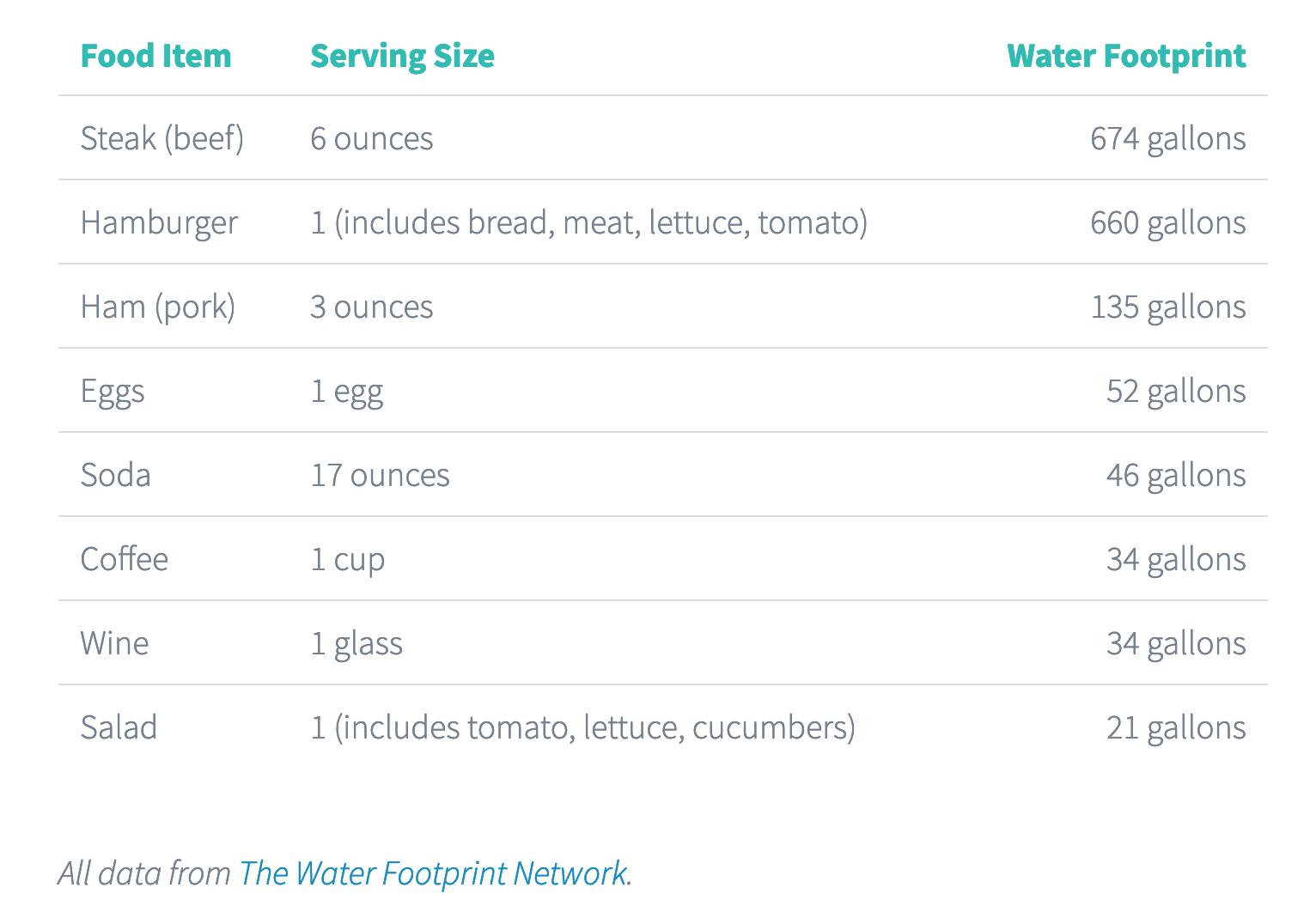
Planted based diets are great for the planet
By Riley Rearden
April 17, 2019
Riley here! Territory’s SoCal Culinary Manager, which means I’m responsible for managing the Southern California chef network and our weekly menu. I’m also our resident lifelong plant-based eater.
Sustainability and environmental protection have always been major passions of mine. Though I graduated from Berkeley with a degree in Nutrition, I chose the College of Natural Resources as my primary school so I could take advantage of as many sustainable food practice classes as possible.
When I’m not deep in meal nutrition analysis or meeting with our local chefs, you’ll find me hiking, on a beach run, or sitting in on a city council meeting to support local sustainability ordinances. So, when given the chance to share a bit about the environmental impact of incorporating more plant-based meals into our lives, I jumped at the opportunity.
It’s becoming increasingly apparent that eating more plants is the healthiest option for our planet. In fact, multiple studies are now suggesting that eating a plant-based diet could be the “single biggest way” to reduce your environmental impact on earth.
Last year a study at Oxford University (published in the Journal of Science) conducted the most in-depth analysis to date on the detrimental effects that farming has on our environment. After looking at data from nearly 40,000 farms in over 119 countries, the study concluded that while meat and dairy account for only 18% of our calories and only 37% of overall protein worldwide, they are responsible for a staggering 60% of agriculture’s greenhouse gas emissions.
Based on these findings, adopting a more plant-based diet would reduce your food’s greenhouse emissions by up to 73%, depending on where you live. And greenhouse gas emissions aren’t the only thing you would be cutting down on. Water use, ecosystem acidification, and deforestation would decrease as well.
According to The Water Usage Calculator Organization, since meat and animal products (specifically beef) have such a high water footprint, trying to eat lower on the food chain is a great strategy for reducing the amount of water required to meet daily dietary needs.
To give you an idea of the water footprint of a few common foods, check this out:

For the sake of scale, if our whole planet chose to switch to a plant-based lifestyle, we would use approximately 3.1 billion less hectares ( 76% less ) of farmland than we currently need to use to meet our agriculture demands. This would take major strain off of our forests, which are vital for the purification of our air and are considered the lungs of our planet. Currently, they’re being chopped down at an alarming rate.
We share this data not to scare you into a plant-based diet overnight, but to help spread awareness of what even a small shift can make.
Swapping a single animal protein containing meal for one that doesn’t can make a significant impact on our limited resources. Which is precisely why the Territory crew is committing to swapping at least one of our typically animal-protein containing meals for one that doesn’t over the next few weeks. We’ve pulled together a few other easy, actionable ideas to contribute to the change:
- Find healthy substitutions for meat and dairy that work for you. For example, even a low-impact liter of cow’s milk creates almost double the emissions as a liter of a milk alternative like soymilk, and uses almost two times as much land. Think of it this way… why grow the grains and soy, use those grains and soy (not to mention other resources) to feed the dairy cows, and then use those cows to produce milk …. when you could save all the cow-raising resources and drink the soy itself.
- Meatless Mondays (or any other day of the week) are also a great place to start. Territory offers incredible plant-based options every week, and there’s an endless pool of healthy, super delicious recipes online to help if you’re new to plant-based cooking. Check out @loveandlemons, one of our go-to spots for vegetarian and vegan cooking.
- Recruit a friend. Finding a buddy to embark on this challenge with you will double the positive impact and will help hold you accountable to your goals.
OK, but … protein.
The go to rebuttal tactic nearly every time I chat with someone contemplating a plant-based shift … “but how can I possibly get enough protein?” If this concern resonates with you, fear not.
The whole foods you eat are more protein packed than you may even realize, and getting complete protein from a plant-based diet is easier than you think. For example, broccoli contains roughly the same amount of protein per calorie as steak, and per calorie, spinach is about equal in protein to chicken and fish. And bonus points … you’re getting an abundance of awesome vitamins and fiber with the spinach.
Certain nuts, seeds, legumes, beans, organic soy, quinoa, and leafy vegetables also pack a protein punch and have far less of an impact on our environment than animal products. For more info on adopting a Planetary Health Diet check this out from Harvard School of Public Health.
If you’re interested in joining the Territory crew in our Planted quest, we’d be so happy to have you! Follow along throughout the month as we share helpful tips, resources, and recipes to make small changes that have meaningful impacts.
Photography by Sarah Gerrity